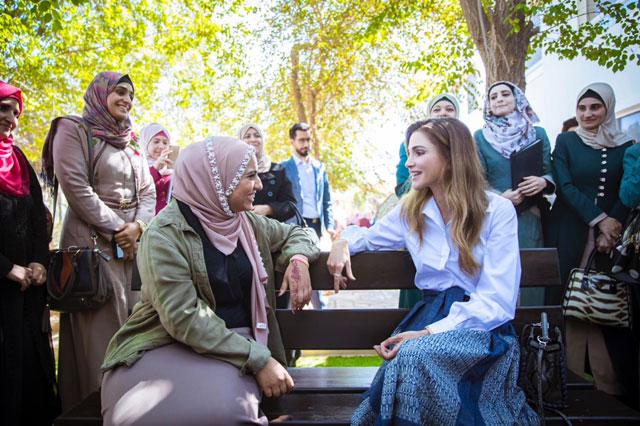You are here
Students speak out against decision to ban ‘bridge’ programmes for pharmacy diploma holders
By Batool Ghaith - Jul 07,2022 - Last updated at Jul 07,2022

Petra photo
AMMAN — Holders of two-year pharmaceutical diplomas, as of September this year, will not be accepted to bridge and enrol in public and private Jordanian universities, according to the Higher Education Council’s recent decision.
The “bridging” programme is designed to provide two-year college diploma holders the opportunity to continue their undergraduate studies and broaden their career prospects.
However, the Ministry of Higher Education and Scientific Research announced on Wednesday that there will be no bridging for pharmacy diploma holders starting from September 1 to gradually control the admission process in the “stagnant and over-loaded majors”, according to the ministry’s website.
The ministry said that there are over 17,000 pharmaceutical students enrolled in bachelor’s degree programmes across public and private universities in Jordan. They added that the decision was to encourage students to pursue other vocational specialties.
The Higher Education Council also decided to cancel the English Language Level Test in the language centres of Jordanian universities. Only the international English language tests TOEFL iBT and IELTS will be accepted to be admitted to post-graduate programmes, according to the ministry.
If the student does not pass, they are required to take and pass a six-hour intensive English language course during their first semester.
Muhannad Al Khateeb, spokesperson for the Ministry of Higher Education and Scientific Research, told The Jordan Times that the decision is to ensure postgraduate students meet the English-language level requirement.
“One of the main reasons that we resorted to the international tests is their great ability to control the tests and students, as unfortunately, in Jordanian universities there are no mechanisms that rise to the required level to control cheating during tests,” Khateeb said.
Some Jordanian students opposed the ministry’s decision.
Samia Lateef, a bachelor’s degree holder who plans to continue her education, voiced her discontent with the ministry’s decision.
“International tests are much more expensive than the regular language test at the university. It is unfair to put more expenses on students,” Lateef told The Jordan Times.
She urged the ministry to either pay for half of the price of the test or to make a special rate for Jordanian students.
“We already pay tuition and many other fees that are expensive and not everyone can afford it,” Lateef said.
Mohammad Zmaili, a two-year diploma holder, told The Jordan Times that the bridging programme is “necessary” and it would be terrible to cancel it for any major.
“Due to financial circumstances, hundreds and thousands of Jordanians choose to obtain a diploma after finishing high-school with the plan to bridge later on when they have better conditions. Many people do that and I am one of them,” Zmaili said.
He noted that the decision to cancel bridging may impede students who wish to continue onto graduate education.
“Obtaining a diploma is not easy and our exams are difficult. We deserve a chance to continue our education when we can afford it. It is not always easy to pay tuition, especially for science majors such as the pharmacy major,” Zmaili continued.
Zmaili called on the ministry to reconsider the decision or to provide an alternative for the bridging programme.
The Higher Education Council made a decision on December 29, 2016 to approve the gradual suspension of students’ bridging in universities, the ministry reported.
According to the ministry, the 2016 decision was in line with the Cabinet’s decision to approve a time frame related to the development of the vocational and technical education and training, where the percentage of students allowed to bridge annually would be reduced to 0 per cent in the 2020-2021 academic year.
It is expected that the council will work to activate this decision in the future for other stagnant and over-loaded majors, the ministry reported.
Related Articles
AMMAN — The Center for Strategic Studies at the University of Jordan announces the beginning of receiving applications for the Professional
AMMAN — Her Majesty Queen Rania on Wednesday visited the Queen Rania Teacher Academy (QRTA), where she met members of the second cohort of t
AMMAN — The Ministry of Higher Education on Wednesday decided to end the bridging system within the next four years by reducing the number o


















